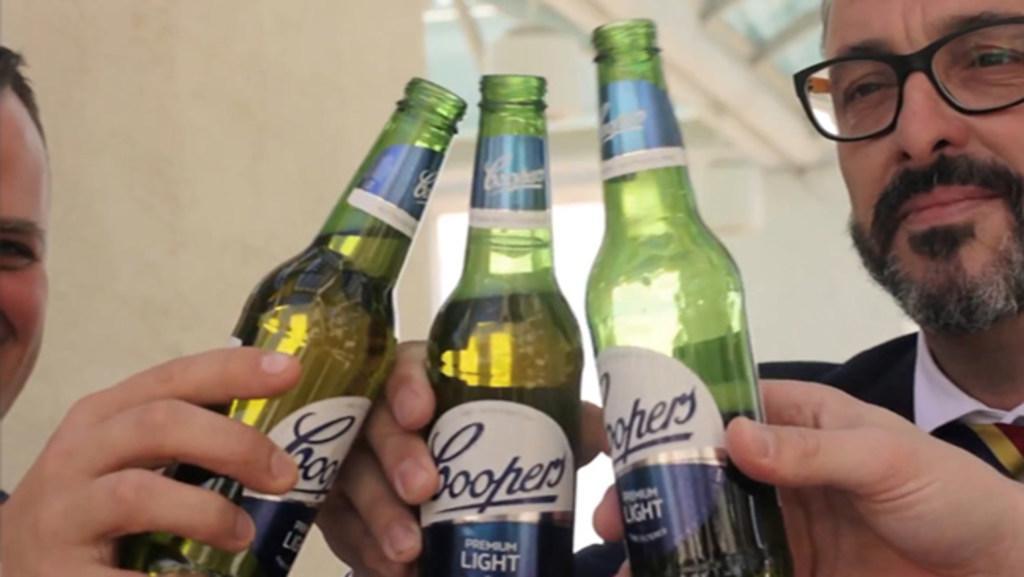Greg Barila: Boycott Coopers, and you’ll boycott any number of excellent organisations
IF you’re ready to boycott Coopers over its support for the Bible Society, get ready to boycott them for supporting Canteen, Autism SA and Riding For the Disabled, writes Greg Barila.
- Activists’ campaign for a Coopers beer boycott labelled ‘absurd’
- Anger brewing over Coopers’ support for Bible Society
IN 2012, Dan Cathy, chief operating officer of Chick-fil-A, a popular US chain of chicken sandwich restaurants founded by his mother, sent feathers flying when he was asked about his company’s alleged donations to anti-gay organisations.
“We are very much supportive of the family — the biblical definition of the family unit,” Mr Cathy told Baptist Press magazine. “We are a family-owned business, a family-led business, and we are married to our first wives.”
Mr Cathy doubled down on his stance in a later radio interview.
“I think we are inviting God’s judgment on our nation when we shake our first at Him and say ‘we know better than you as to what constitutes a marriage’ and I pray God’s mercy on our generation that has such a prideful arrogant attitude to think that we have the audacity to define what marriage is about’.
There are no prizes for guessing what happened next.
The comments sparked a national backlash with gay rights activists taking steps to hit Mr Cathy where it hurt — his bottom line.
University students launched campaigns to ban Chick-fil-A restaurants on their campuses, the Mayor of Boston, Thomas Menino (a Democrat) wrote to the company vowing to block the company’s moves to open outlets in his city, while same-sex couples took photos of themselves being affectionate outside Chick-fil-A restaurants in a so-called “Kiss Off’.
But huge crowds also came out in support of the company’s point of view, putting chicken sandwiches at the centre of a national debate about the moral and legal implications of letting gay people marry each other.

The whole furore, and countless other similar corporate scandals that have happened in the years since, including this week’s outrage over Coopers’ affiliation with the Bible Society, raises some interesting questions about the place of popular brands in the public discourse but also what is reasonable for us to expect of brands and businesses that at the end of the day have one goal and one goal only — to make a profit.

Like in the Chick-fil-A case, the outrage brigade has been quick to call for a boycott of Coopers but they are really not the same.
Coopers isn’t guilty of actively denouncing same-sex marriage, only gently supporting a Christian organisation.
Seriously, who cares?
But more than that, as other more astute observers have been quick to point out in the wake of this confected scandal, Coopers, among other events, has been a major sponsor of SA’s annual gay & lesbian festival Feast.
Sound like the actions of a rabidly homophobic company to you?
As local marketer Kat Nicholson pointed out on Twitter, Coopers also supports more than 170 other worthy charities through its Coopers Foundation.
So, if you’re ready to boycott Coopers over its support for the Bible Society Australia, you better be ready to boycott them for their support for organisations including Canteen, Autism SA and Riding For the Disabled.
If you’ve got some kind of beef with the Seventh-day Adventists, better stop buying Weet-Bix while you’re at it.
Don’t get me wrong.
Of course people should have the right to boycott brands and businesses who go out of their way to discriminate against people on the basis of their race or sexuality (not that I think such an action would do much to change the hearts and minds of business leaders like Dan Cathy).
But if we had to boycott every brand or business whose owners make a misstep, or espouse attitudes that don’t accord neatly with our own, what would we eat, watch, read, drive or wear?
Because as long as they’re not selling children into slavery or killing polar bears for sport, should we really care what the makers of Vegemite do with their Sundays or how they fill in their ballot sheet at elections?
I suggest we turn our focus and our energy to more egregious examples of active discrimination of which, sadly, in these times, there are plenty to choose from. Because, really, in the broader scheme of things, the Coopers ‘scandal’ is small beer.
